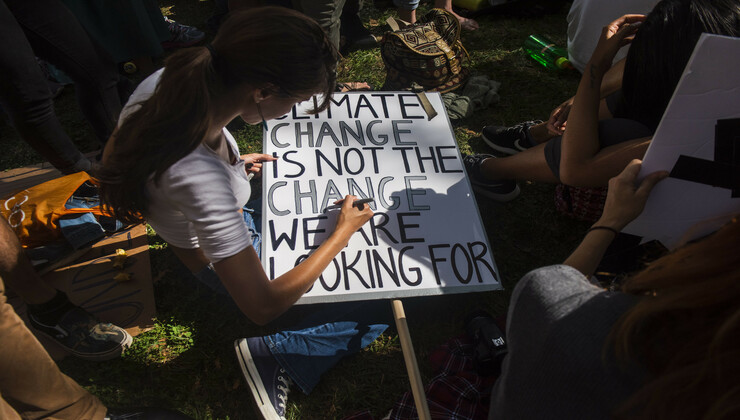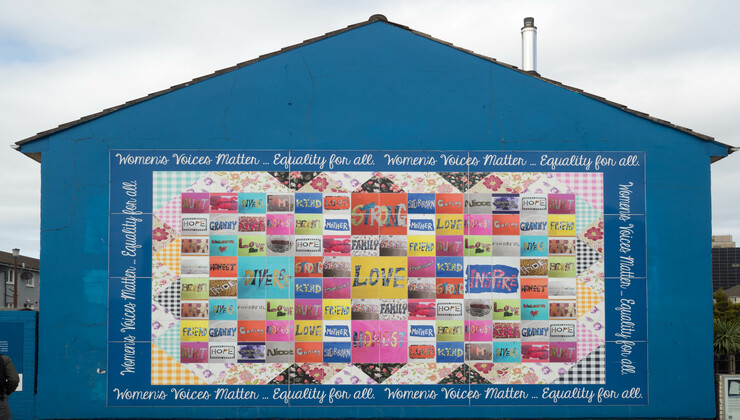This blog is part of the WPS Forum on 15 Years of UK WPS
Sofia Patel traces how Britain’s approach to gender-sensitive international development programming has evolved over 20 years and what this has meant for the WPS agenda.
Britain’s fifth National Action Plan (NAP) on Women Peace and Security (WPS) is due to be published later this year. It will be interesting to see whether or not the new NAP includes a strategic pillar dedicated to preventing and countering violent extremism (P/CVE), after being included in the 2018 version for the first time.
In this post, I trace how Britain’s approach to gender-sensitive international development programming has evolved over 20 years and what this has meant for the WPS agenda. In a post-9/11 paradigm, an ‘integrationist’ approach to international development was established which introduced counterterrorism into development programming through a ‘development-security-counterterrorism’ nexus. This had specific impacts on gender-sensitive development programming. The main feature being that the formerly parallel development, security and counterterrorism agendas have been connected through the harnessing of gendered cross-cutting issues of WPS. The implications of these strategic shifts are revealed through the integration of the P/CVE agenda into the 2018 NAP.
Historically, feminists have been cautious about integrating P/CVE into the WPS agenda due to both operational and conceptual concerns. These include poorly defined P/CVE policies and practices; lack of adequate gender training for P/CVE practitioners and ensuring that the safety and security of women are not compromised as a result. In Britain, the civil society organisation Gender Action for Peace and Security (GAPS) “makes the case for protecting WPS as a framework for achieving women’s rights as a standalone goal, rather than as a means to achieve national security objectives.”
Unfortunately concerns appear to be well-founded. Out of the seven ‘strategic outcomes’ of the fourth NAP, the P/CVE outcome is the only one that does not appear to be systematically subjected to the same external scrutiny or oversight as the others.
The implementation guidance note for the P/CVE strategic pillar, published a year after the NAP, did not elaborate on this either and the annual NAP reports to Parliament published in 2020 and 2021 make minimal reference to ‘CVE’ with the word featuring six times in 2020 and twice in 2021. The lack of appropriate monitoring and evaluation indicators for the P/CVE strand of the 2018 NAP did not inspire much confidence that programming in this space was either rigorously designed or able to be adequately monitored.
For example, the NAP states: “the links between women, peace and security and preventing and countering violence [sic] extremism are an emerging concern for the international community. As such, meaningful indicators have not yet been developed and data is not gathered systematically.” which suggests that the integration of P/CVE into the NAP was more on a trial-and-error basis than grounded in a strong methodological approach which understood the specific challenges, the potential outcomes of policies/programmes on women, whether practitioners on the ground, targets of interventions or in relation to the security context in the local area.
On the one hand, taking a trial-and-error approach reflects the caution with which the NAP authors addressed the contentious task of linking WPS and P/CVE, reflecting an awareness of the political and practical considerations. However, as a strategic pillar, its aims and objectives were left far too vague compared to the others, suggesting that programming would not have been clearly defined, even on a temporary basis.
Due to the constraints around the limited evidence base and the lack of robust monitoring and evaluation indicators, the integration of the P/CVE agenda into the 2018 NAP failed to meet the mark.
The NAP drafting process is quite collaborative, with commissioned research from academics and civil society practitioners to inform the NAP process. DFID had been commissioning external research about women, (counter)terrorism and countering violent extremism since 2015 from academics, think tanks and internal research analysts.
Furthermore, recommendations made by civil society groups are usually directly addressed and integrated into the final NAP version. For example, in 2017, a national consultation with academics and organisations across the WPS space commented on a range of issues such as the lack of attention paid to men and boys and the intersectionality between other social issues such as race, class, and disability; this feedback was directly incorporated into the 2018 NAP. Similarly, the organisation Gender Action for Peace and Security provided expert opinion and advice from a practitioner approach, which was also incorporated. These examples demonstrate the importance of external consultations; collaborating with practitioners outside of government has clearly informed the NAP development process in the past and should be consistently employed for all future iterations.
There have been further encouraging developments in relation to prioritising feminist approaches to integrating P/CVE and WPS work across smaller FCDO-linked departments such as the Joint International Counter-Terrorism Unit and the Conflict Stability and Security Fund.
In recent years they have both produced internal guidance documents that consider gender-related challenges relevant to the development-security-counterterrorism nexus in a nuanced and thoughtful way. Given these observations, it appears as though the perceived immature understanding of how to integrate P/CVE into the NAP may have been more to do with political challenges in the drafting process, rather than ideological confusion.
Two overlapping issues have delayed the evolution of gender-sensitive policies and practices across both WPS and P/CVE policy agendas. Political tensions and clashes between the departments who work across different portfolios, combined with individual biases of those in positions of power and influence have shaped the process of integrating different policy agendas. This process is also influenced by a combination of institutional incoherence, conflicting priorities and ‘sticky’ gendered legacies based on stereotypes about women, gender and international (in)security and (counter)terrorism.
Although the WPS agenda has done well to put women’s concerns and experiences on the international security and development radar for the last 20 years, there remains a clear lack of knowledge about how women, gender and (counter)terrorism intersect and interact with broader security and development aims and objectives. This has stalled the development of a more rigorous understanding of how women are connected to or engage with terrorism and violent extremism over the last decade. The 2018 NAP is the most thoughtful iteration yet, but there is still a long way to go in terms of deepening and developing knowledge about the cross-cutting factors of gender, security, development and (counter)terrorism.
The views, thoughts and opinions expressed in this blog post are those of the author(s) only, and do not necessarily reflect LSE’s or those of the LSE Centre for Women, Peace and Security.
Image credit: UN Women (CC BY-NC-ND 2.0)



